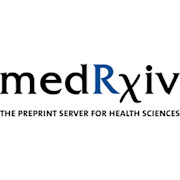- Science News
- Featured news
- Open access: In conversation with Frontiers’ Dr Marie Souliere
Open access: In conversation with Frontiers’ Dr Marie Souliere
Joining us today is Dr Marie Soulière, senior publishing manager at Frontiers, who was elected as Council Member of the Committee on Publication Ethics (COPE) in 2020. In this interview, we delve into the challenges faced by open access publishers when it comes to publication ethics. Dr Soulière highlights the rising complexity of fraud, ranging from data manipulation to fake peer reviews, and the heightened scrutiny faced by open access publishers. We also explore Frontiers’ unwavering commitment to quality, their adherence to COPE guidelines, and their proactive approach to evolving research integrity practices in response to emerging threats.

What are the main issues open access publishers face right now regarding publication ethics? How have these changed in recent years?
Throughout the industry, the main changes have been the increase in complexity and sophistication of fraud. Anything from text reuse to data manipulation, authorship-for-sale, fake peer review and identity theft, has scaled up. While all publishers face these issues, open access publishers face more scrutiny from readers as all published articles are freely accessible to all. This has the advantage of allowing some ethical issues to come to light more quickly and for open access publishers to correct the scientific record fast.
Quality is a core pillar of Frontiers approach to publishing. In your view, what does quality mean and how is it represented throughout Frontiers’ portfolio?
For me quality is the degree of excellence of something as measured against other things of a similar kind. To know what level of excellence we expect of articles, authors, editors, we need to benchmark against publishing standards.
Quality is never an accident but rather the result of concerted efforts. You have to aim for and work towards quality processes to achieve quality publications. At Frontiers we have quality assurance steps and standard operating procedures for all aspects of the publication process, with two dedicated teams for Research Integrity and Auditing whose specialists and experts assess quality and investigate any publishing ethics concerns.
What steps does Frontiers take to make sure it adheres to the requirements prescribed by COPE throughout its guidelines?
Frontiers is very thorough in how it engages with COPE’s recommendation for ethical publishing. We have transparent guidelines that offer specific details on requirements, for example, data sharing, competing interest declarations, correction of the published literature or how appeals and escalations can be triggered. Whenever a new guidance is released by COPE, we reassess our procedures and guidelines to ensure we meet the ethical standards and apply these best practices.
What is Frontiers doing to make sure its practices evolve in line with new threats?
We really keep apprised of what is going on in the publishing world, being part of a number of industry-wide working groups, for example, with COPE, and with the STM Integrity Hub. We also have a team of internal experts who have a keen eye and the experience and data proficiency to detect new malpractices and emerging patterns. We are also particularly good at quickly developing quality checks and tools to help us manage such new threats.
To what extent are these measures working, and how does one measure success in this respect?
The success of most new practices we implement is measured by whether the initial complaint or concern recurs, either in our internal regular quality audits, or from concerns flagged externally. For instance, when reports emerged regarding image manipulation issues across the industry, we promptly dealt with similar cases in our journals. We then audited all papers using the same tool. To measure success, if we retracted 20 articles for image manipulation in one year, and in the following year, by implementing new internal practices, we detected and addressed this same manipulation during the initial peer review validation before publication, we would view this as a major success. This is how we know our image detection software and internal manipulation check guidelines are yielding good results and how we maintain quality throughout the publication record.
Do you think open access publishers are targeted by memes? Why?
Everything of interest is targeted by memes! There was a time when memes were mostly about publishers in general, and the pressure to publish (with a lot of “publish or perish” being tossed around). I think most recent memes have been about predatory publishing, or suspicion thereof, more than open access specifically. I think currently researchers are worried about predatory publishers and it’s important for legitimate open access publishers to clearly demonstrate quality and be transparent about their processes. Frontiers has lengthy public quality criteria, and we maintain high standards with a combination of AI detection, internal experts, investigating patterns, verifying identities of all participants in peer review, and following COPE guidance and investigation mechanisms.







